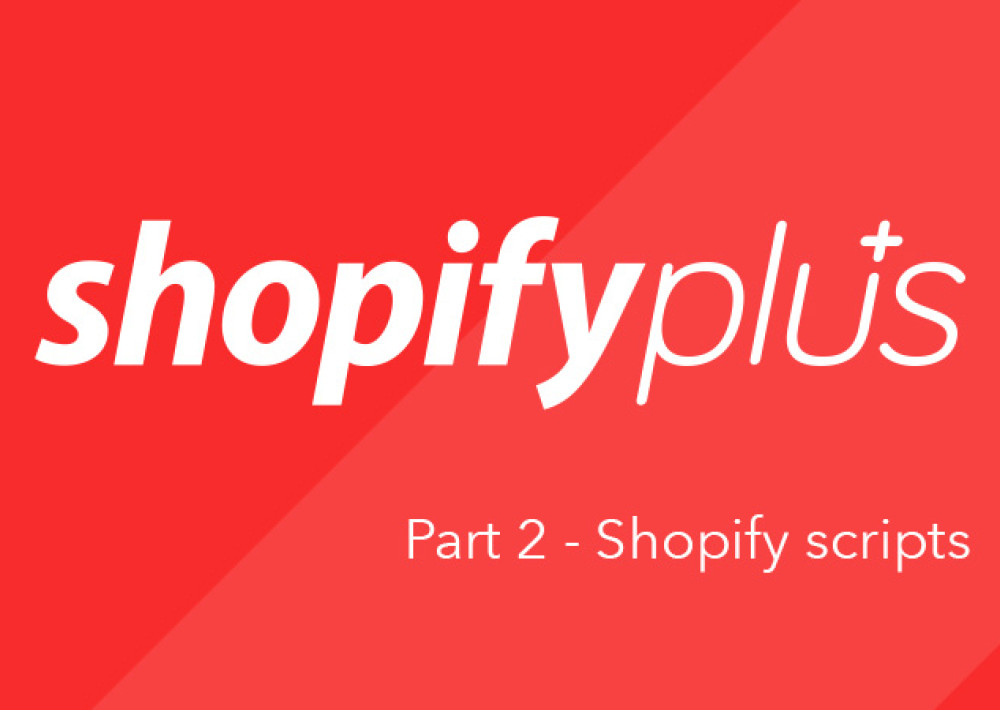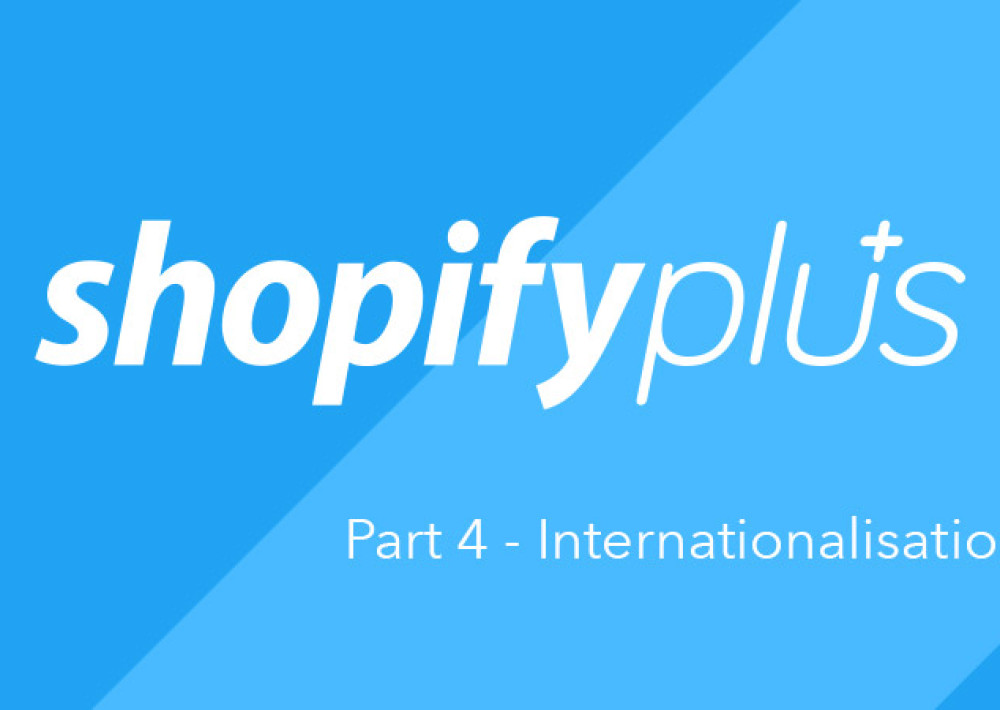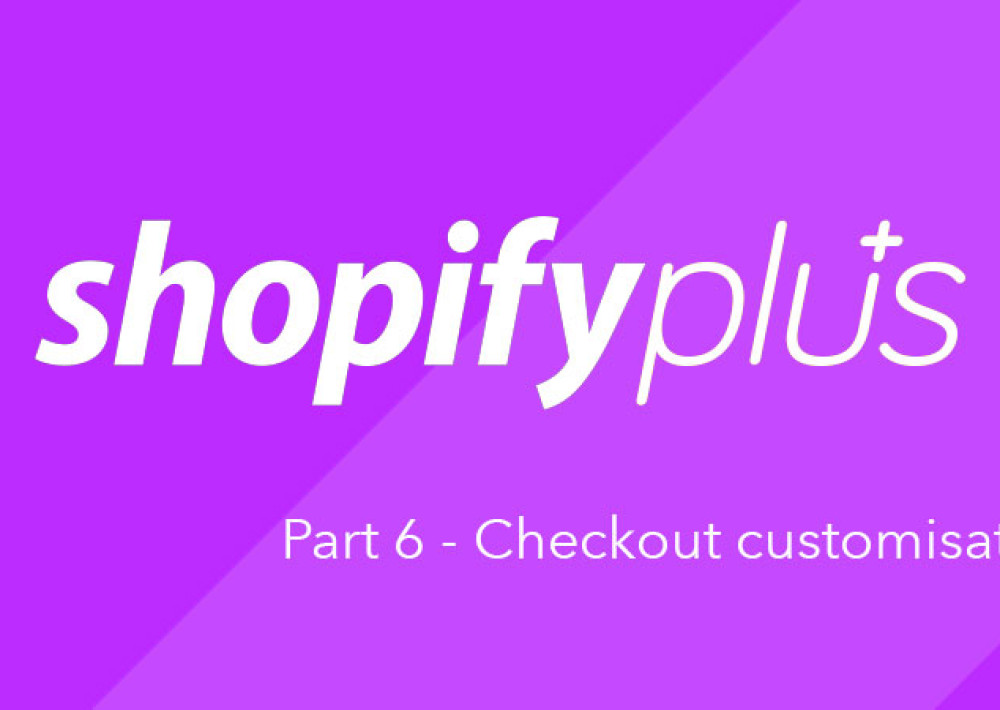Want to work with our team?
Get in touch
This article is the fifth in a series exploring the features of Shopify Plus.
The first four articles of the Shopify Plus mini series can be found here:
This article will take a look at the API functionality offered to Shopify Plus merchants.
Part 5 – Plus-dedicated APIs
API – standing for Application Programming Interface – is a common web protocol that, simply put, enables the requesting, receiving and sending of data between different programmes. APIs are used widely across a multitude of web applications – in fact, many Shopify users will have relied on an API at least once before, probably without even realising.
The vast majority of third-party apps found in the app store utilise the Shopify API to gain access to data that is not readily accessible otherwise. Once the data has been retrieved, it can be manipulated, giving developers the power to create functionality that otherwise wouldn’t be possible.
In short – if you’ve used an app to extend Shopify’s native functionality, you’ve most likely relied on Shopify’s API.
Shopify APIs
Shopify offers a range of APIs to merchants of all tiers.
In fact, last June, at Shopify’s annual event ‘Shopify Unite’, the company announced several new APIs. These new APIs provided developers with the extra tools to build and enhance various Shopify functionality, including:
Translations
New page building options for Sections
Order editing
Custom delivery profiles (set per-product and per-location shipping rules)
Multi-currency
The full list of new API functionality introduced in June 2019 can be seen here.
Whilst merchants might jump at the opportunity to implement some of these new features on their Shopify stores, it’s important to note that these are not simply features found in the Shopify’s native settings. Instead, the APIs simply provide the relevant data to enable the creation of these functions.
Therefore, if a merchant wished to employ the above features, they would need to either find an app in the Shopify app store that does so, build a custom app, or access and manipulate the API themselves outside of an app environment. For merchants with less development experience, it is recommended to seek advice from a developer.
Have a question? We're happy to help.
Plus-exclusive content
Increased API call limit
One of the most notable API-related benefits that merchants receive when upgrading to Shopify Plus is an increase in API call limit. The default API limit is able to handle up to 40 requests at once (bucket size), outputting these requests at a rate of 2 per second (leak rate). For those on Shopify Plus, these numbers are doubled to a bucket size of 80 and leak rate of 4 per second. This bucket analogy is known as the 'leaky bucket algorithm'.
This is particularly useful for Plus merchants looking to incorporate large scale applications that deal with large amounts of data. Furthermore, Plus merchants can apply to have the limit increased even further by contacting the Plus support team.
For more information, see Shopify’s API documentation.
Enterprise-level integrations
Many enterprise-level stores rely heavily on software solutions to help manage various aspects of their businesses. These softwares often cover product management, inventory and order management, warehouse management and more.
Using the Shopify Plus API, merchants are able to integrate these systems with their Shopify stores, creating an interconnected, harmonious system that ultimately makes life easier for merchants.
Plus-exclusive APIs
Gift Card
Available only for private apps, the Gift Card API allows merchants to manage their store’s gift cards from outside Shopify’s native settings.
View all Gift Card API properties
User
Similar to the gift card API, the User API allows merchants to manage their store’s staff accounts from outside Shopify’s native settings.
Multipass
The Multipass API enables Plus merchants to integrate and merge the credentials of their Shopify store’s users and the users of another website or forum that they own.
For example, a merchant might own a blog to promote products and a Shopify store to sell them. If the blog offers the functionality for users to sign up and post content themselves, the same users would be able to automatically create and sync an account for the Shopify store using the same credentials.
To conclude
The overarching perks of the Shopify Plus APIs very much align with those of Shopify Plus in general. The aim? To simplify processes. To automate tasks. To create more easily manageable systems. And to support businesses with the goal of expansion and growth.
To the average Shopify merchant, the thought of a large interconnected system that integrates numerous business management softwares is likely to be overwhelming and, probably, overkill. But to the businesses large enough to warrant a Shopify Plus subscription or those aiming for enterprise-status, the talk of an increased API call limit and the numerous integration options supported are most likely welcomed.
Want to work with our team?
Get in touch









